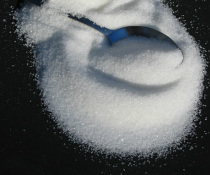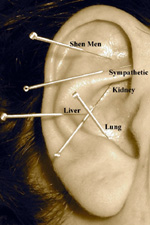 Sugar is 8 times as addictive as cocaine! The average Canadian consumes 26 teaspoons of sugar daily or 40 kilograms a year! Refined sugar leads to long-term malnutrition, deficiencies, obesity, digestive problems, PMS, recurrent infections, Candida, hyperactivity, fatigue, ADHD, anxiety, diabetes, heart disease and Cancer. Sugar activates the brain’s reward system making it addictive. Research has shown higher sugar levels increase your chances of dementia even if you do not develop diabetes. Refined sugars are mostly converted into fat because they do not stimulate your hunger hormone, which leads to overeating since your full response is not activated. As the weather gets warmer think twice before you reach for your favorite drinks. A 591ml bottle of Coca Cola has 70g of sugar; a 16oz can of Rockstar energy drink has 64 g of sugar. A medium iced coffee at McDonald’s has 22g of sugar and that “healthy” bottle of Minute Maid’s lemonade contains 52 g of sugar. The “sugar-free” artificial sweeteners are worse for you than sugar itself. They promote hunger and increase your appetite so you end up eating more, which is counterproductive when you’re trying to lose weight. Research has found that these artificial sweeteners still cause high insulin levels in the blood, which in turn promotes the body to store body fat. Refined sugars also stimulate appetite as they lack nutrients. Headaches, weight gain, increased cravings, GI problems, liver and kidney toxicity are some other problems associated with these. Refined sugars include corn syrup, fructose, high fructose corn syrup, sucrose, dextrose and artificial sweeteners with sucralose, saccharine and aspartame. Quitting sugar is not easy and requires a multi level approach through a combination of dietary changes, detoxifying and herbal support. Natural sugar options in moderation include honey, maple syrup, stevia and agave nectar. Healthy snack alternatives include fruit, brown rice cakes, mixed nuts, seeds, vegetables, hummus and protein smoothies. Rather than replacing one form of sugar with another, the goal is to decrease the amount of sugar you consume.
30 Comments
 The National Acupuncture Detoxification Association’s auricular acupuncture protocol, commonly called the NADA protocol, is commonly used for treating various addictions ranging from smoking cessation, to substance abuse and withdrawal. It is an auricular acupuncture protocol that has a set number of points that are needled in both ears. The actions of these points help people recover from substance abuse by helping in the detoxification process and helping with emotional, physical and psychological factors associated with the addiction. Research has looked at the NADA protocol in smoking cessation, cocaine addiction, psychoactive drug withdrawal, and alcohol dependence in recent years. Despite how popular the NADA protocol has become in addictions treatment, quality research is still lacking. Consequently, when one looks at all the research, it appears to be inconclusive on the efficacy of this treatment. However, when you look at the research studies that have been done closely, there are serious shortcomings since the studies lack consistency in their methodology. Some have measured effectiveness of the NADA protocol by measuring if the patient turns to the substance of their choice. Other studies have compared effectiveness of the NADA protocol by comparing it against sham acupuncture or no intervention. However, none of the studies have combined auricular acupuncture with other interventions when it comes to treating the addiction. The NADA protocol when combined with other treatments such as botanical tinctures for smoking cessation or substance withdrawal increases the patient’s ability to cope with the emotional and physical demands as their body detoxifies. In order to effectively quit smoking or alcohol dependence, old habits need to be broken and replaced with new healthy habits and coping mechanisms. The ultimate test comes down to when a stressful situation arises and how one is able to cope without turning to the substance of their previous dependency. The auricular acupuncture helps to provide the additional support needed to this effectively. The main five points in the NADA protocol are:
|
Harmi KalerDoctor of Naturopathic Medicine in Okotoks and Calgary. Categories
All
Archives
July 2015
|
CLINIC INFORMATION
|
LOCATION
113 - 109 Southbank Blvd
Okotoks AB T1S 0G1 Phone: 403 938 1138 Fax: 403 982 2114 Email: [email protected] |
HOURS
Monday: 10am - 6 pm Tuesday: 10 am - 6 pm Wednesday: 10am - 6 pm Thursday: 10am - 6 pm Friday: 10am - 6 pm Saturday: by appointment only Sunday: Closed Holidays: Closed UPCOMING CLINIC CLOSURES
|
This website is for educational purposes only. The content on this website is not meant to treat, diagnose or prevent any conditions. Always consult with a qualified healthcare provider for your care. The author of this website is not liable for any adverse effects that may occur based on any information obtained from this website.
Copyright ©2013-2023 by Harmony Health Integrative Centre. All Rights Reserved
Copyright ©2013-2023 by Harmony Health Integrative Centre. All Rights Reserved

 RSS Feed
RSS Feed